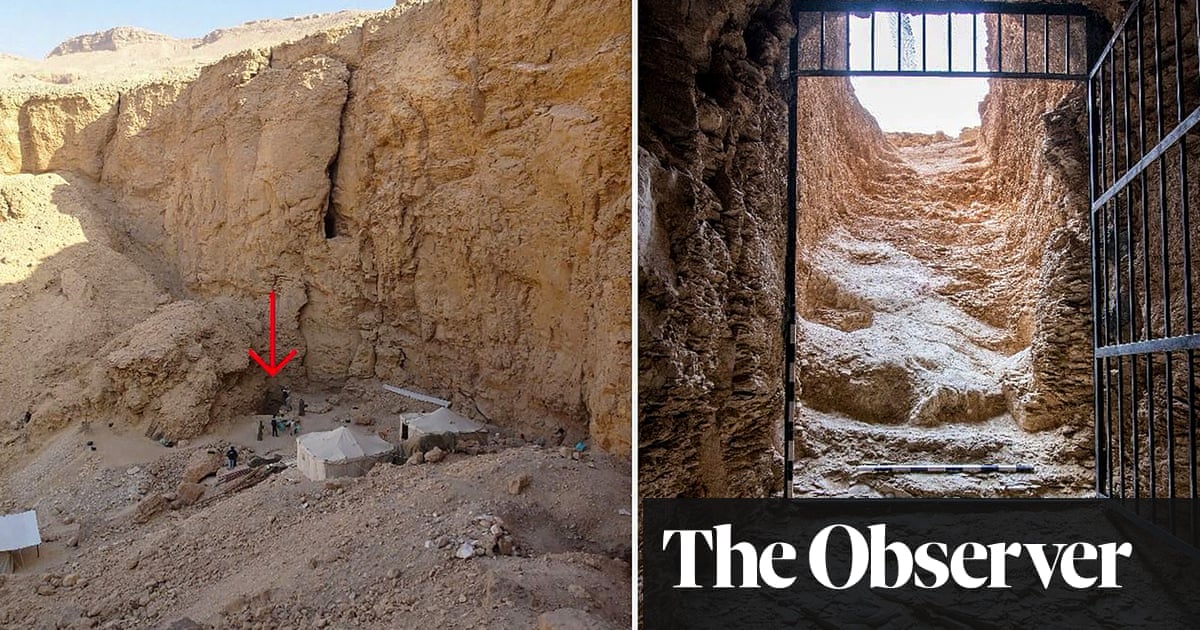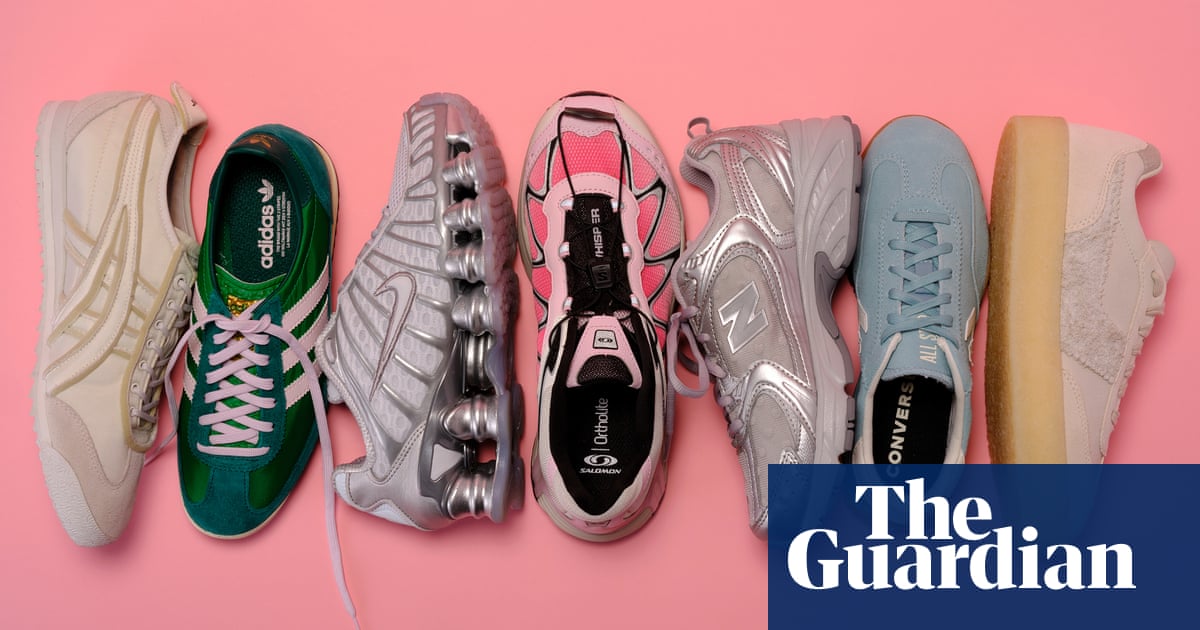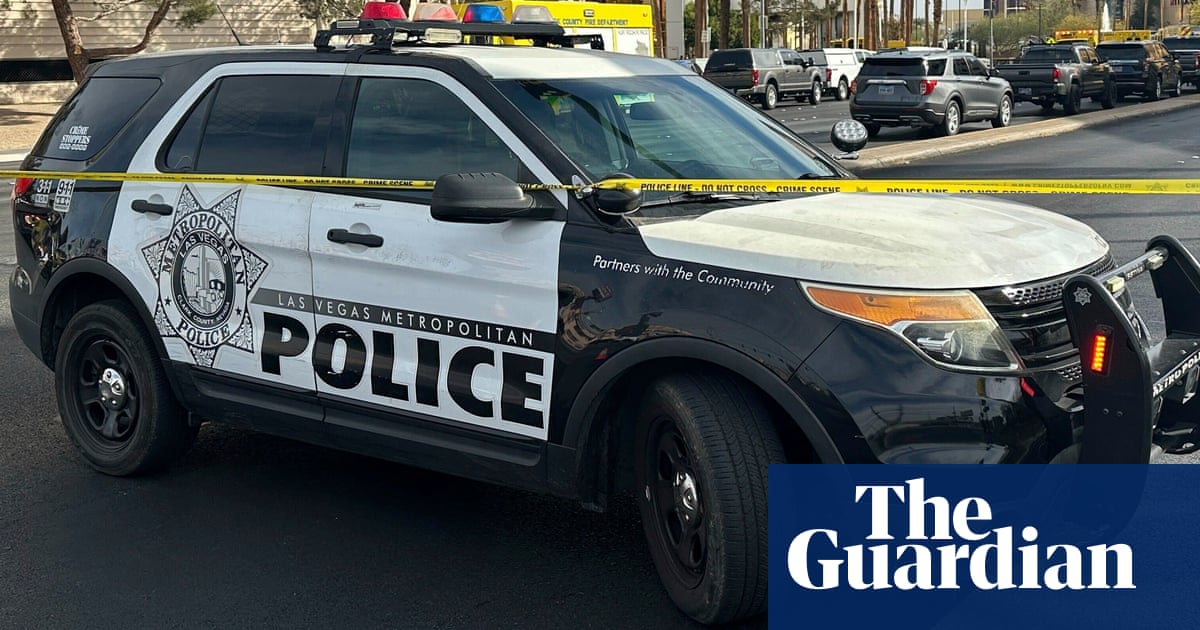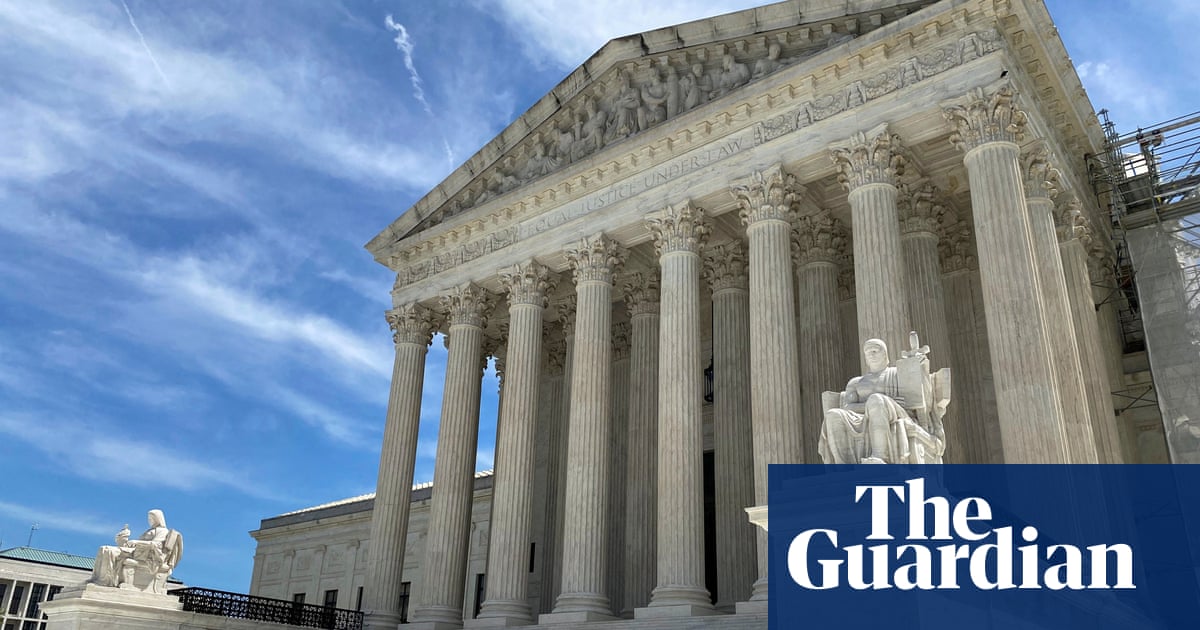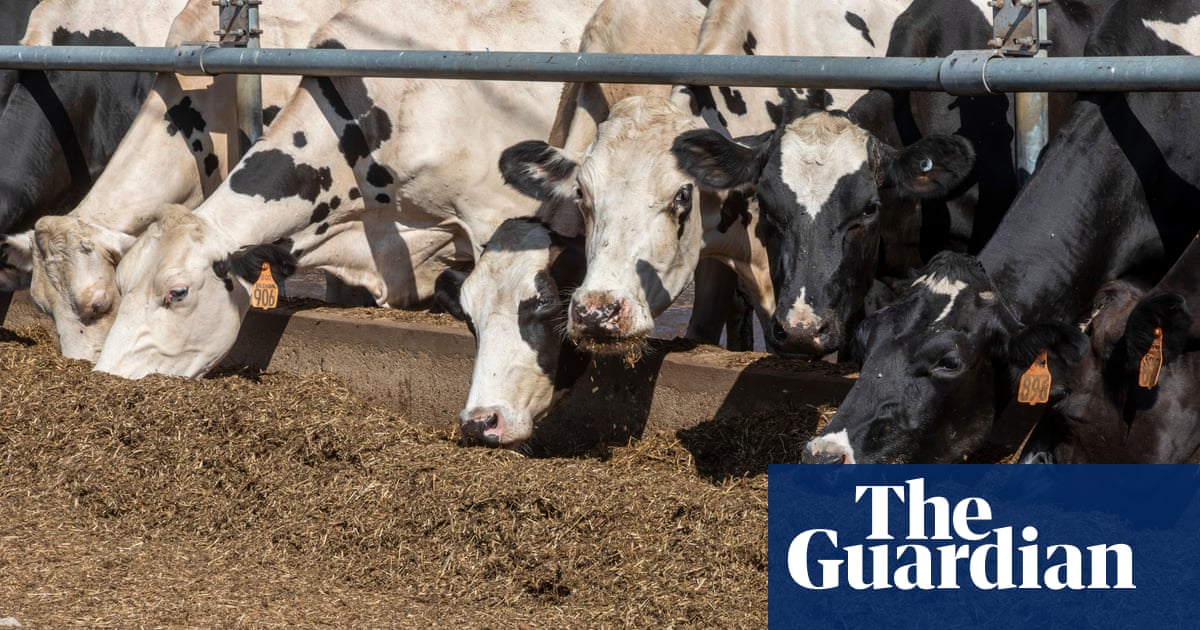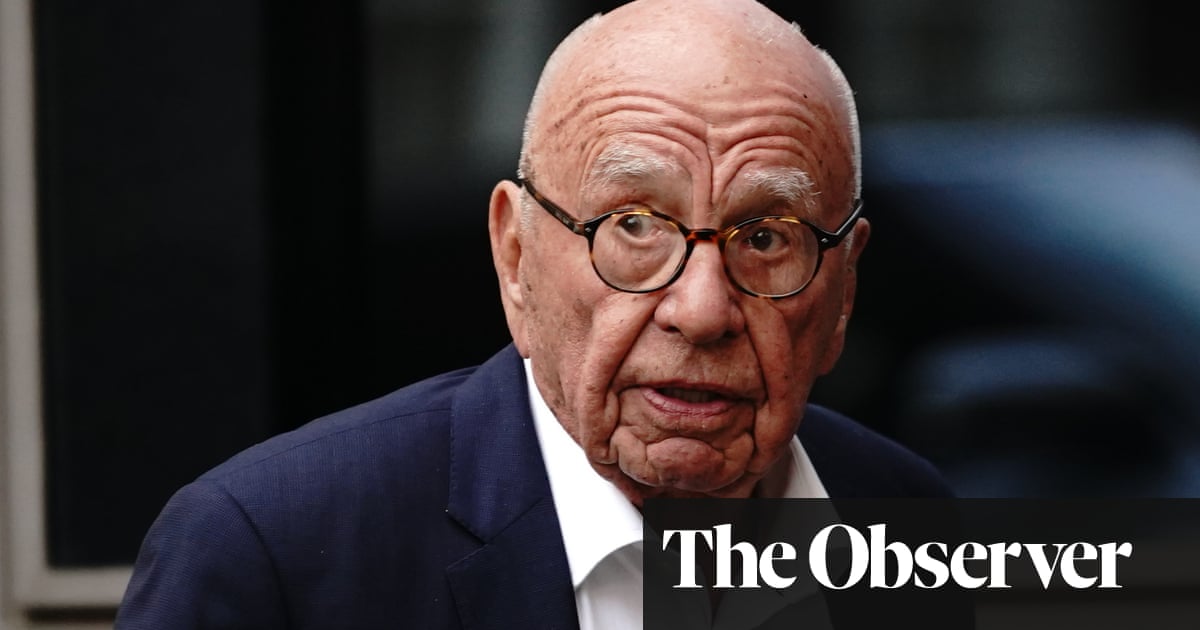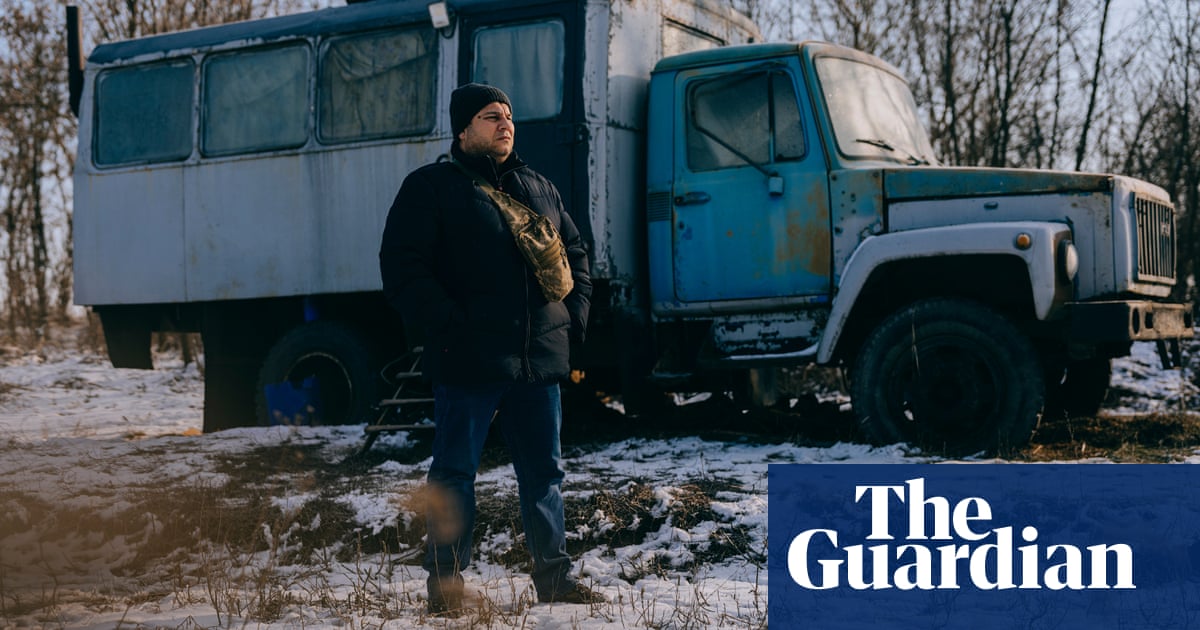Oil and chemical companies who created a high-profile alliance to end plastic pollution have produced 1,000 times more new plastic in five years than the waste they diverted from the environment, according to new data obtained by Greenpeace.
The Alliance to End Plastic Waste (AEPW) was set up in 2019 by a group of companies which include ExxonMobil, Dow, Shell, TotalEnergies and ChevronPhillips, some of the world’s biggest producers of plastic. They promised to divert 15m tonnes of plastic waste from the environment in five years to the end of 2023, by improving collection and recycling, and creating a circular economy.
Documents from a PR company that have been seen by the Guardian suggest that a key aim of the AEPW was to “change the conversation” away from “simplistic bans of plastic” which were being proposed across the world in 2019 amid an outcry over the scale of plastic pollution leaching into rivers and harming public health.
Early last year the alliance target of clearing 15m tonnes of waste plastic was quietly scrapped as “just too ambitious”.
New analysis by energy consultants Wood Mackenzie, obtained by Greenpeace’s Unearthed team and shared with the Guardian, looked at the plastics output of the five alliance companies; chemical company Dow, which holds the AEPW’s chairmanship, the oil companies ExxonMobil, Shell and TotalEnergies, and ChevronPhillips, a joint venture of the US oil giants Chevron and Phillips 66.
The data reveals the five companies alone produced 132m tonnes of two types of plastic; polyethylene (PE) and PP (polypropylene) in five years – more than 1,000 times the weight of the 118,500 tonnes of waste plastic the alliance has removed from the environment in the same period. The waste plastic was diverted mostly by mechanical or chemical recycling, the use of landfill, or waste to fuel, AEPW documents state.
The amount of plastic produced is likely to be an underestimate as it only covers two of the most widely used polymers; polyethylene which is used for plastic bottles and bags, and polypropylene, used for food packaging. It does not include other major plastics such as polystyrene.
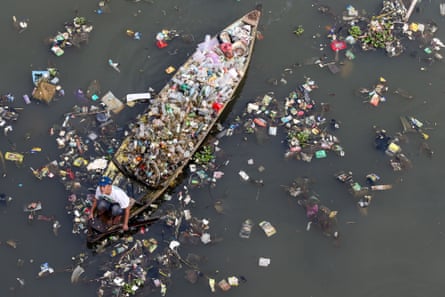
The new data was revealed as delegates prepared to meet in Busan, South Korea, to hammer out the world’s first treaty to cut plastic pollution. The treaty has a mandate to agree on a legally binding global agreement to tackle plastic pollution across the entire plastics life cycle.
But the talks, which have been subject to heavy lobbying by the alliance and fossil fuel companies, are on a knife-edge in a row over whether caps to global plastic production will be included in the final treaty.
Will McCallum, a co-executive director at Greenpeace UK, said the revelations had stripped off the thin layer of greenwash hiding the growing mountain of plastic waste oil companies were producing.
“The recycling schemes they’re promoting can barely make a dent in all the plastic these companies are pumping out,” he said. “They’re letting the running tap flood the house while trying to scoop up the water with a teaspoon. The only solution is to cut the amount of plastic produced in the first place.”
Bill McKibben, a US environmentalist, said: “It’s hard to imagine a clearer example of greenwashing in this world. The oil and gas industry – which is pretty much the same thing as the plastics industry – has been at this for decades.”
In response to the allegations a spokesperson for the AEPW said it “respectfully disagrees with the allegations and inferences, including that the organisation’s purpose is to greenwash the reputation of its members … The alliance aims to accelerate innovation and channel capital into the development of effective scalable solutions to help end plastic waste and pollution.”
The AEPW has had a significant lobbying presence at the UN plastic waste talks, which enter their final stages on Monday. Its representatives have consistently argued that reductions in plastic production should not be included in the treaty.
The UK’s new Labour government has shifted the country’s stance and signed a ministerial declaration calling for the inclusion of reductions in production and consumption of primary plastic polymers to sustainable levels in the treaty. The United States under President Biden also shifted its position this summer to support caps on global production. It is not known yet the position of the incoming Trump administration.
A UK government source said: “The government supports an effective treaty which covers the full life cycle of plastics including reducing the production and consumption of plastics to sustainable levels.”
after newsletter promotion
ProfSteve Fletcher, from the Revolution Plastics Institute at the University of Portsmouth, said recently there was now compelling evidence that only a reduction in primary plastic polymer production, or virgin plastic, would deliver a substantive cut in plastic pollution.
Documents from the PR company Weber Shandwick outline how the AEPW was created in 2019 after they were approached by the American Chemical Council seeking ways to counter the “demonisation” of plastic and the growing calls for bans on plastic items.
The alliance paid Weber Shandwick $5.6m for its work in 2019, according to US tax returns.
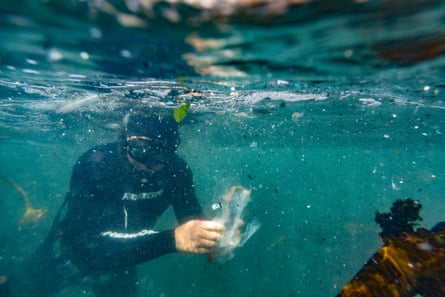
The documents state the alliance was intended to change the conversation away from “short-term simplistic bans of plastic” and create “real, long-term solutions” for managing waste, like recycling.
But documents filed in California in September, where the attorney general, Rob Bonta, is suing ExxonMobil, argue the company has deceived the public for 50 years, with misleading public statements and slick marketing, about the recyclability of plastic.
The UN treaty talks start as plastic production continues to soar. Between 2000 and 2019 the global annual production of plastics doubled, reaching 460m tonnes. Plastic waste has more than doubled, from 156m tonnes in 2000 to 353m tonnes in 2019, only 9% of which was ultimately recycled, according to an OECD report.
An AEPW spokesperson said: “No single organisation can solve the plastic waste challenge alone and the Alliance is cognisant of the fact that we are just one among many stakeholders who contribute with solutions … our mandate is to identify solutions that support the collection, sorting and recycling of plastic and promote a circular economy for plastics.”
ExxonMobil said in a statement: “Plastics aren’t the problem – plastic waste is. We support a broad set of solutions to address plastic waste and are doing our part to contribute, including through advanced recycling, the Alliance to End Plastic Waste, and by supporting the global treaty’s goal of eliminating plastic pollution by 2040.
“Instead of suing us, California officials could have worked with us to fix the problem and keep plastic out of landfills … We’re bringing real solutions, recycling plastic waste that’s difficult to recycle by traditional methods … We have been direct with our customers about the plastics and products we sell. We stand by our public statements.”
Shell and TotalEnergies declined to comment. ChevronPhillips and Dow did not respond to approaches for comment.
The American Chemistry Council said: “In January 2019 ACC and its members launched the AEPW to help end plastic pollution. For years AEPW has operated as an independent and separately incorporated organisation. ACC has no role in AEPWs governance or decision-making.”

 3 months ago
50
3 months ago
50


